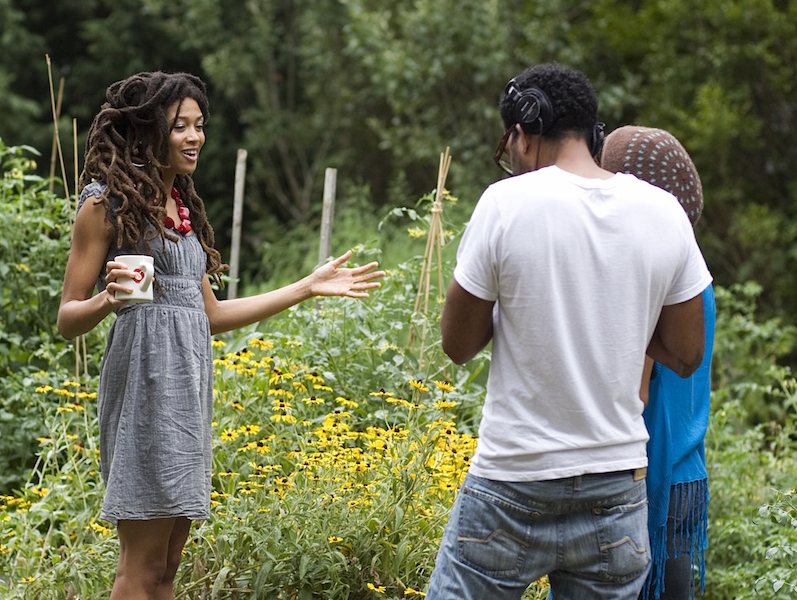These days you hear a lot about the dearth of fresh produce in food deserts like Crown Heights, Bed Stuy and Brownsville. But one stretch of ground at the intersection of those neighborhoods celebrates the people who once grew food—and much more—in one of the first free-black communities in the country.
In 1838, a properous African American dockworker named James Weeks purchased land there; as a village blossomed, it took his name. Weeksville drew other freemen from New York and the Caribbean, as well as freed Southern slaves. The community included homeowners and renters, doctors and teachers. It published its own newspaper and boasted thriving kitchen gardens.
An 1873 Brooklyn Daily Eagle profile described Weeksville as “a sort of terra incognita, its inhabitants mostly colored people,” and observed that “the houses have gardens surround[ing] them … their corn, tomatoes, beans, peas are plentiful and well grown. The livestock consists of chickens, geese and goats.”
The residents grew much of their own food well into the 20th century—a prolific gardener named Mrs. Williams fed her family a homegrown harvest through the Great Depression—but as Brooklyn grew, the town shrank, until the last residents departed in the 1950s.
Left to languish in the shadow of modern buildings, a few 1800s farmhouses were rediscovered in the 1960s and awarded landmark status; in 2005, Weeksville Heritage Center opened the remaining three farm cottages to the public, interpreting the lives of free blacks who lived there—including their abundant backyards.
Jennifer Steverson, Weeksville’s public programs curator and head gardener, oversees the recreated beds, which feature heirloom plants that grew there a century ago, like Georgia Green Collards, Detroit Red Beets, Cajun Jewel Okra and Fish Pepper. Steverson’s garden crew includes second graders from nearby PS 243 and teenagers from Boys & Girls High School. An on-site farmers market sells the harvests on summer Saturdays and the Center offers cooking demonstrations, canning classes, even holistic health workshops on homemade beverages and skin care products.
“There is inspiration in uncovering the techniques cooks used to create delicious, nourishing meals,” says Steverson. “Things seemed to move more slowly when people spent a day canning the harvest or preparing an elaborate Sunday meal. The value lies in the pleasure of preparing meals from scratch.”
Photo credit: Ed Mitchell.



